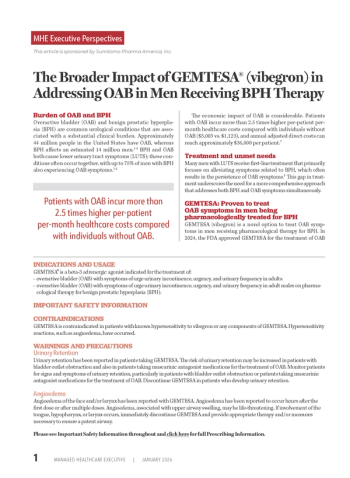
Value-Based, Senior-Focused Primary Care is Transforming Healthcare for Older Adults
By Reneé Buckingham, President of Humana’s Primary Care Organization, including CenterWell Senior Primary Care and Conviva Care Center
The senior population in the U.S. is rapidly expanding, as is the demand for comprehensive health care to address their specific needs. There are now approximately
Access to quality care for seniors is a growing crisis, potentially leading to poorly managed and untreated chronic conditions and spiraling costs from worsening disease, disability and more frequent emergency department visits and hospitalizations. This is particularly true
While the outlook may seem grim, there are care models that provide solutions to these access challenges and health inequities. One effective approach is the value-based, senior-focused primary care, like that practiced at
These results confirm the benefits we see patients experience daily at our more than 300 primary care centers, many of which are located in underserved areas where the need for accessible and quality health care is great. Using a value-based, care team approach, our physicians have smaller patient panels and spend more time with patients – 50% longer than typical doctor visits. That extended time builds trust and communication, enabling a better understanding of the circumstances impacting the patient’s health and a personalized treatment plan based on the patient’s life and health goals. This team-oriented model also allows us to address the socioeconomic and mental health factors impeding their well-being, with social workers available to connect patients to community services, such as food and housing assistance, and to mental health practitioners.
The need for and success of senior-focused primary care is evident in the expanding network of CenterWell and Conviva clinics which now deliver care to approximately 345,000 seniors across 15 states, making them the largest senior-focused, value-based primary care providers in the country. To increase access to primary care services specifically designed for older adults even further, we have plans to open CenterWell and Conviva clinics at 23 Walmart Supercenter retail stores in Florida, Georgia, Missouri and Texas.
With the dramatic increase in our senior population, the importance of accessible, quality health care for older adults has never been more critical. Value-based, senior-focused primary care is proving to be an effective approach, delivering the comprehensive care and support services seniors need, especially those living in underserved communities.
Newsletter
Get the latest industry news, event updates, and more from Managed healthcare Executive.



















